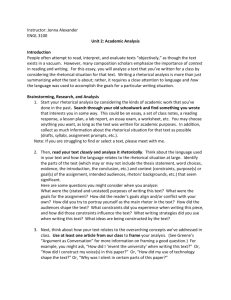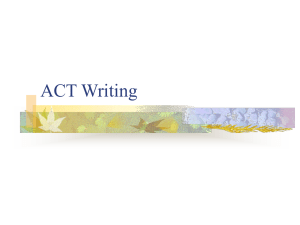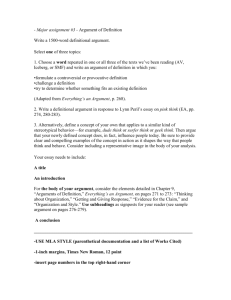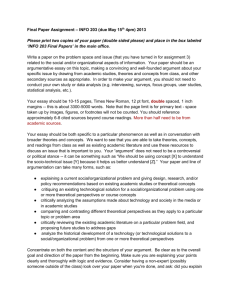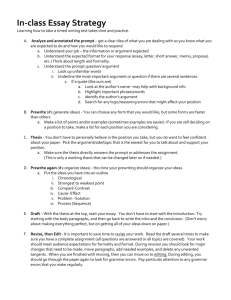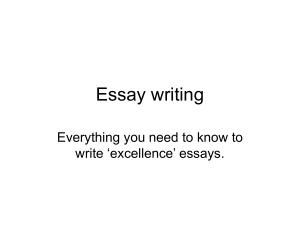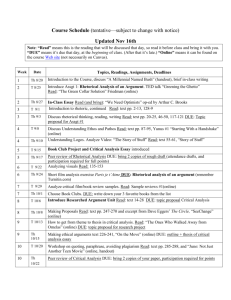AP English Language and Composition Course Outline 14
advertisement
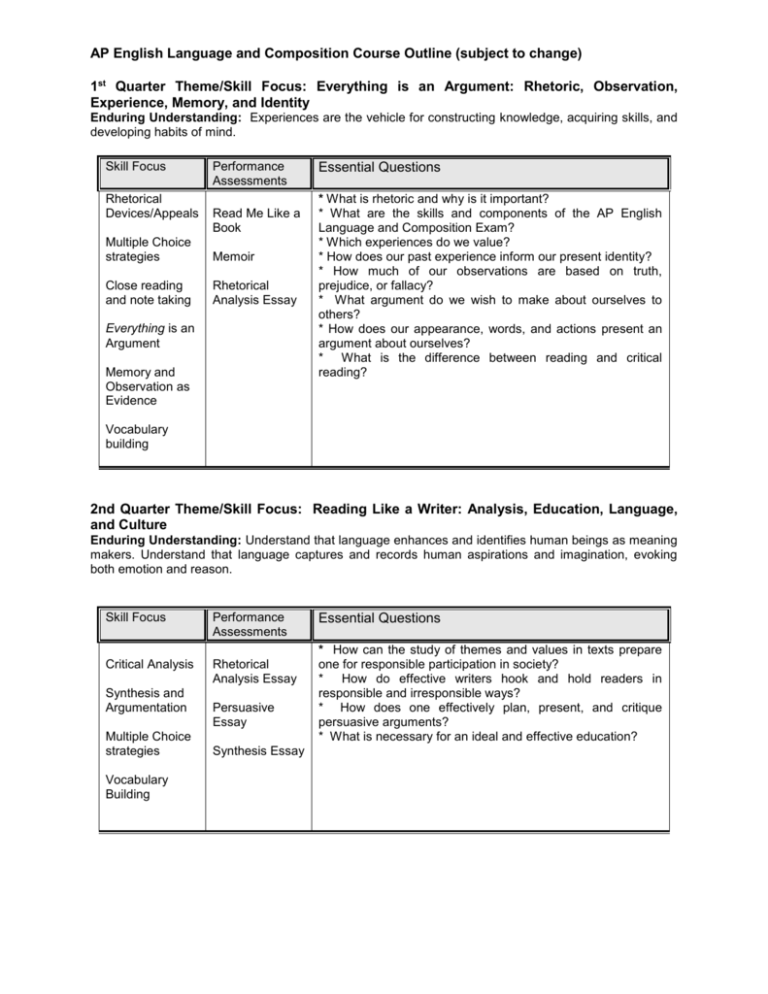
AP English Language and Composition Course Outline (subject to change) 1st Quarter Theme/Skill Focus: Everything is an Argument: Rhetoric, Observation, Experience, Memory, and Identity Enduring Understanding: Experiences are the vehicle for constructing knowledge, acquiring skills, and developing habits of mind. Skill Focus Rhetorical Devices/Appeals Performance Assessments Read Me Like a Book Multiple Choice strategies Memoir Close reading and note taking Rhetorical Analysis Essay Everything is an Argument Memory and Observation as Evidence Essential Questions * What is rhetoric and why is it important? * What are the skills and components of the AP English Language and Composition Exam? * Which experiences do we value? * How does our past experience inform our present identity? * How much of our observations are based on truth, prejudice, or fallacy? * What argument do we wish to make about ourselves to others? * How does our appearance, words, and actions present an argument about ourselves? * What is the difference between reading and critical reading? Vocabulary building 2nd Quarter Theme/Skill Focus: Reading Like a Writer: Analysis, Education, Language, and Culture Enduring Understanding: Understand that language enhances and identifies human beings as meaning makers. Understand that language captures and records human aspirations and imagination, evoking both emotion and reason. Skill Focus Performance Assessments Critical Analysis Rhetorical Analysis Essay Synthesis and Argumentation Multiple Choice strategies Vocabulary Building Persuasive Essay Synthesis Essay Essential Questions * How can the study of themes and values in texts prepare one for responsible participation in society? * How do effective writers hook and hold readers in responsible and irresponsible ways? * How does one effectively plan, present, and critique persuasive arguments? * What is necessary for an ideal and effective education? 3rd Quarter Theme/Skill Focus: They Say, I Say: Persuasion, Synthesis, Authority, and Technology Enduring Understanding: Credible outside ideas enhance inner beliefs and existing knowledge. Skill Focus Types of Arguments Multiple Choice strategies Bias and Fallacies Performance Assessments Essential Questions Argument/Evaluation Essay * What is authority? * How can I recognize validity and authority in my sources? * How can I use a source to enhance my argument or understanding of text? * How does one effectively plan, present, and critique persuasive arguments? * To what extent is technology changing us? Write Your Own Synthesis Essay Annotated Bibliography (MLA) Choice and Evaluation of Sources Synthesizing and Implementing Sources Critically 4th Quarter Theme/Skill Focus: Divergent Compositions: Visual Rhetoric, Hidden Meanings, Community, and Relationships Enduring Understanding: Surprisingly hidden meanings can be found when looking at text as imagery and imagery as text. Skill Focus Performance Assessments Visual Argument Art as Argument Essential Questions Synthesis and Argumentation Rhetorical Analysis Argument/Evaluation Project: Stereotypes Service Learning Project (if seniors) Book review Multiple Choice strategies Vocabulary Building What does it mean to be a citizen of a community? What do stereotypes/archetypes mean? How can the study of themes and values in texts make us better citizens? How are we manipulated/influenced by visual argument? How does my personal perspective help to understanding hidden meaning in text? How does my understanding of author’s intent help find universal truth in text?


